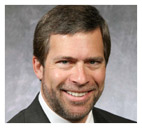|
Download the Media Review | JW in the News | 100 Years of History
Bob Latham Bulletin
On November 25, as Americans celebrated Thanksgiving, Russian television journalist Leonid Parfyonov accepted the first-ever Vladislav Listyev prize for television journalism in Moscow. His acceptance speech, which has gone viral in parts of Europe, was a stark commentary on the state of Russian television journalism – an Edward R. Murrow moment, somewhat poetic since it came from a part of the world which consumed the inimitable Senator Joseph McCarthy. Parfyonov equated the current pressures on Russian television journalists with those during the days of the old USSR Central Television and lamented the fact that Russian broadcast journalism was not living up to its responsibilities as a “civic socio-political institution.” I had the unique perspective of seeing clips from the Parfyonov speech while in the former Soviet Republic of Georgia (not a particularly traditional Thanksgiving). The reaction of the Georgian people watching Parfyonov’s remarks was as strikingly dramatic as the somber tone with which Parfyonov began his remarks. “I’m worried, and will not try to speak by memory; for the first time in the studio I am going to read aloud,” said a visibly nervous Parfyonov as he began to read from a written text. For me, living in a country where free speech is often taken for granted, watching Parfyonov's bold statements and the reaction of the Georgians was a poignant reminder that courageous stands must sometimes be taken in the name of free speech.
The Georgians were as nervous for Parfyonov as he was for himself, understandably so given the recent brutal beating of Russian newspaper correspondent Oleg Kashin, the murder of Russian journalist Anna Politkovskaya and, pointedly, the murder of journalist Vlad Listyev – the man in whose name the award to Parfyonov was given. Indeed, the fate of those journalists was referenced by Parfyonov in his speech. For me, living in a country where free speech is often taken for granted, watching Parfyonov’s bold statements and the reaction of the Georgians was a poignant reminder that courageous stands must sometimes be taken in the name of free speech. It also reinforced in my own mind the enormous value placed on free speech by people who have not always had it. Parfyonov obviously anticipated the reaction that his comments might generate and preemptively declined the “hero” status that some might try to confer. “I don’t have the right to blame any of my colleagues. I myself am no fighter and don’t expect any heroics from others. But things at least need to be called what they are.” There was one particular portion of Parfyonov’s speech that might serve as a lesson for journalists everywhere. When television “news” is serving as a tool for a particular ideology, a large part of the population feels no need for real journalism at all, a proposition that Parfyonov called “frightening.” It explains some of the muted reaction to the beatings and murders of reporters, in his view, and causes people to wonder, “What’s this fuss over some reporter?” “Millions of people don’t understand that a journalist takes a professional risk for the sake of his audience,” observed Parfyonov. Let’s hope that Parfyonov’s remarks inspire journalists in all parts of the world to continue to take such professional risks. And to Mr. Parfyonov, I can only say, “Good night and good luck.” — Bob Latham is a partner at Jackson Walker. He can be reached at blatham@jw.com. |






